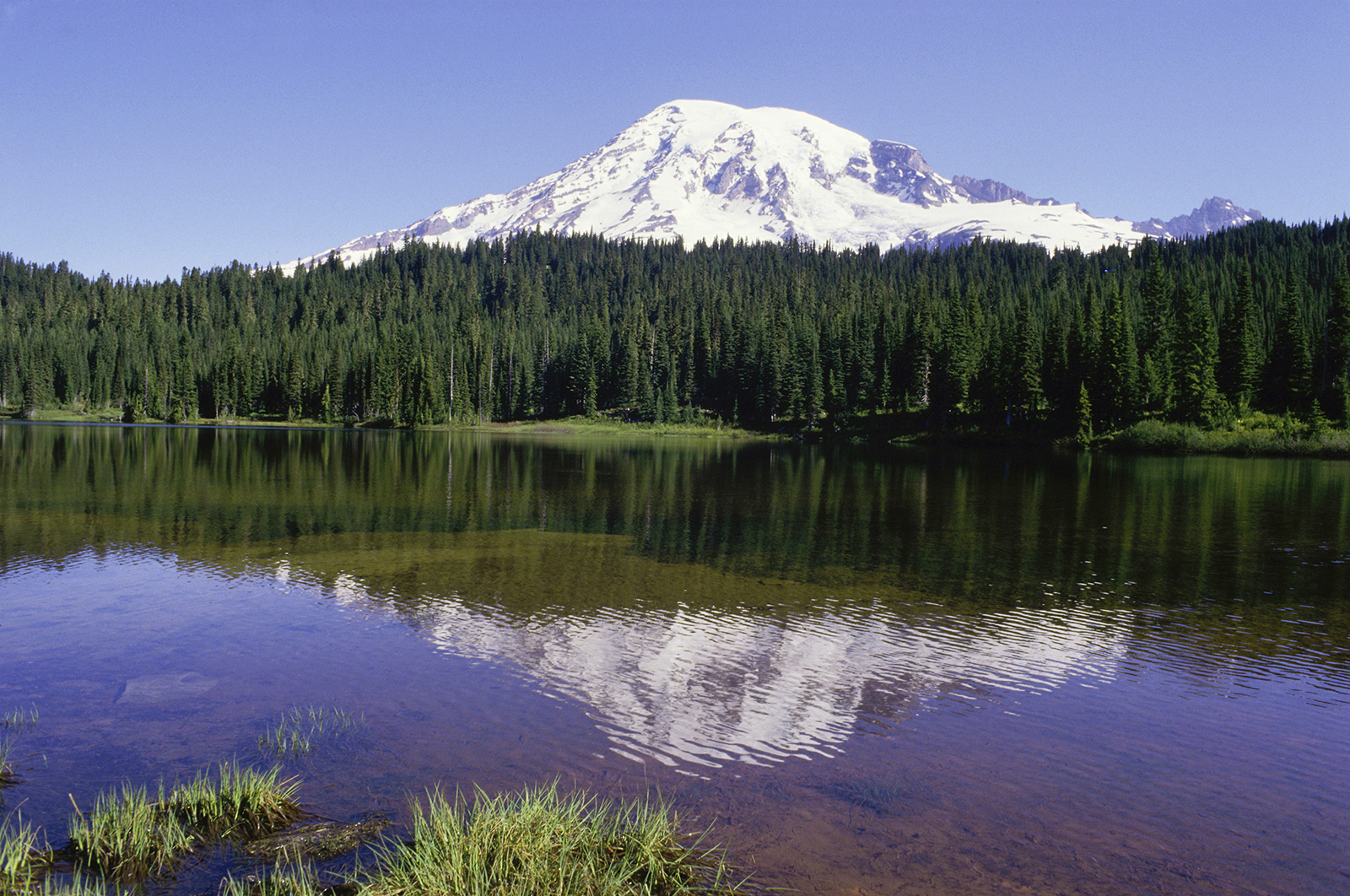Steamboat Rock State Park in north-central Washington is simply stunning. Jutting out into the middle of Banks Lake, it stands sentry amid azure waters and deep coulees—a stark and wide-open landscape that makes an appearance in the new Chevy Silverado commercial, the one featuring Kid Rock passing a stone while he sings “Boooooooorn free!”
J.P. Squire of Kelowna, B.C., had heard such good things about the park that he decided to make the four-hour drive on a Friday last May to see it himself. But nothing about his experience would bring to mind the word “free,” in any sense. As he detailed in a screed later published in a newspaper, he called ahead to make a campsite reservation, but was told the computer system couldn’t process same-day reservations. Undeterred, he and his camping partners headed south anyway, with intentions to reserve a site when they got there—a plan that would be familiar to any seasoned camper.
They arrived after 10 p.m to an unoccupied park booth and a registration box with no registration forms in it. Tired, they decided to grab a couple of unoccupied sites with no “reserved” signs on them, get some rest, and deal with payment the next day. But the next morning, there was still no park staff around to take their money for a campsite. They waited till 11 a.m. before giving up and going for a hike. When they returned, they found tickets bearing $138 fines on each of their vehicles for various offenses, among them camping at a reserved site even though, Squire wrote, no one was in either site and nothing marked them as reserved. They protested, unsuccessfully, and left the park utterly defeated.
Washington State Parks has since apologized to Squire and sent him a $75 gift certificate. But the tickets stuck, since they were already in the court system and out of the park’s hands. The unlucky Canadians eventually paid the fines “under protest.”
Within Squire’s ordeal lies the paradox of Washington’s state parks: State lawmakers have, through severe funding cuts, required the parks system to become almost completely reliant on user fees—mostly through the yellow Discover Passes seen hanging in every Subaru windshield in Seattle, but also camping fees like the ones Squire was trying to pay if he could just find someone to give them to. However, due to those cuts, the services that parks are asking people to pay for are getting progressively worse. In private-sector terms, it’s like taking half the ice-cream flavors out of a shop, cutting hours, then expecting people to pay more for their dessert.
Since they were introduced in 2011, sales of Discover Passes have grown steadily, though not nearly fast enough to make up for the $86 million reduction in general funding between 2009 and now. Parks officials say it’s a recipe for collapse.
Alongside Squire’s complaint, other problems that parks officials highlight include: an average loss of three and a half employees for every state park in the state; dirty bathrooms; and in some parks, a 75 percent decrease in trail maintenance. It got so bad last year that the parks had to cut volunteer hours by 70,000 because they didn’t even have anyone to supervise the free labor.
“If we don’t arrest that situation and reinvest in the parks, people aren’t going to want to come,” concludes Virginia Painter, spokeswoman for Washington State Parks. “It’s not sustainable.”
While not as extreme, a similar dynamic is at play in our national parks. Over the past four years, federal funding for parks operations has dropped 8 percent and park construction funding more than 60 percent, according to parks advocacy group National Parks Conservation Association. This has led to a $6 billion backlog in transportation projects alone.
At Mount Rainier, the work backlog includes dilapidated bathrooms and abandoned roads, says acting deputy superintendent Dave Larson. In a normal business, this isn’t the kind of product that you’d feel confident announcing a 67 percent price increase for, but that’s exactly what parks across the country, including Rainier and Olympic National Park, are proposing: Next year a week pass at the two parks will increase from $15 to $25 and a year pass from $30 to $50, if the fee increases go through (they are up for public comment until Dec. 31).
Not that the parks have any other choice to shore up their crumbling infrastructure. It would be delusional to expect the incoming Republican Congress to drastically increase federal spending on the national parks system.
“There’s not a lot of money going around,” Larson concludes. “What we’ve been told is to look at how we can deal with the backlog.”
Here’s looking at you, park visitor.
Back at the state level, with the release of Gov. Jay Inslee’s budget on Thursday, Painter said her agency is cautiously optimistic that some relief could be on its way. Inslee highlighted parks funding in a summary of his budget, saying it would provide for 91 more staff members to join the agency, among other improvements.
The budget shows “he is agreeing . . . that state parks cannot be fully self-supporting,” Painter says.
However, the budget is sure to face serious scrutiny from the legislature, especially the $1.3 billion in new revenues Inslee wants to bring in through capital gains and pollution taxes.
And regardless of what happens, the parks will continue to rely heavily on user fees to pay for operations, which could see a decided drop in business from British Columbia.
As it turns out, Squire is an outdoor-travel columnist. As he noted in the op-ed he wrote for the Star in Grand Coulee detailing his nightmare at the nearby Steamboat Rock State Park, he intended to write his next column about his experience south of the border.
The general takeaway, he said: Beware.
news@seattleweekly.com








